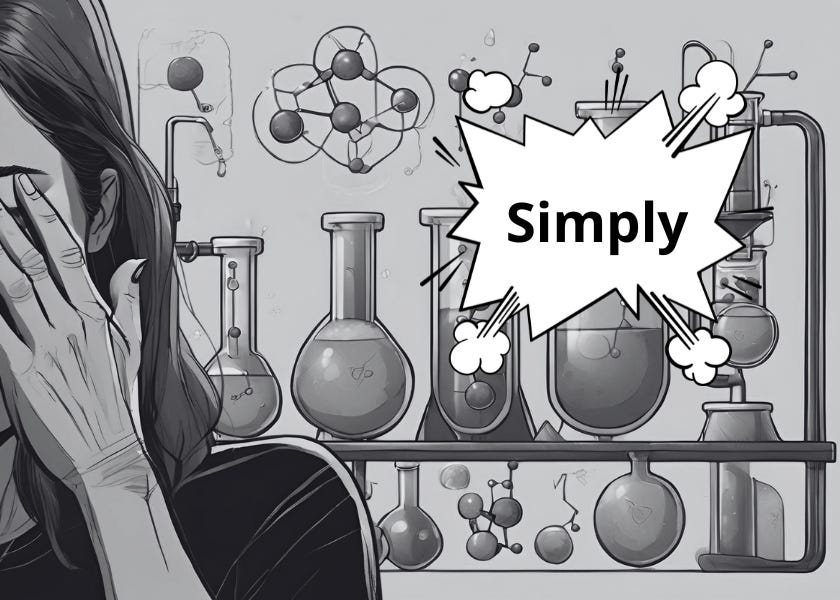Day 3: Incommoded by Prime Matter
It's hard thinking about something we can't see yet is part of every nanometer of us.
The wasteland that I complained about yesterday (sorry) is deep ontological reality. Okay, I get it. This isn’t supposed to be comfortable. I studied philosophy the last two years for a M.A. degree, and in the courses, I focused on learning. Now it’s time to master the content. It shattered my worldview. My understanding of atoms? The elements on the periodic table? What if they are not elements after all? Don’t get me wrong; I think this is good, so good that it should be prescribed for all scientists. But it simply hurts!
Take that word “simply.” I wrestled with this passage yesterday about generation in the context of act and potency, matter and form.
Because generation is a motion to form, there is a twofold generation corresponding to this twofold form. Generation simply speaking corresponds to the substantial form, and generation in a certain respect corresponds to the accidental form. When a substantial form is introduced, we say that something comes into being simply speaking: f…
Keep reading with a 7-day free trial
Subscribe to GOD & ELEMENTS to keep reading this post and get 7 days of free access to the full post archives.





